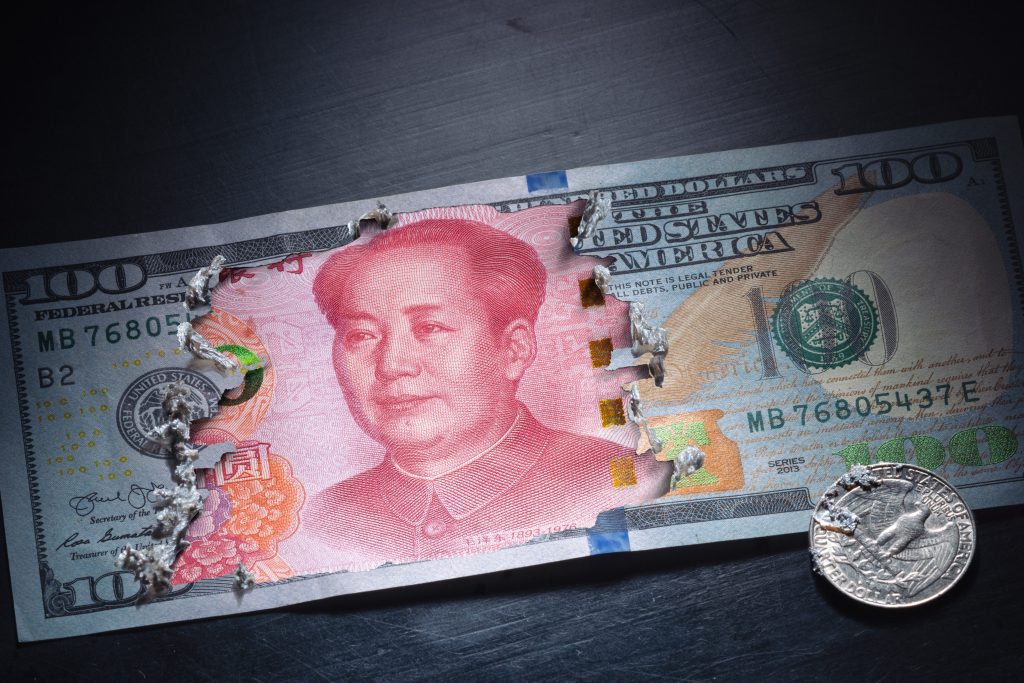- China's central bank fixed the yuan at a stronger-than-expected level of 6.8536 per dollar Thursday.
- It aims to prop up its currency after it fell to a two-year low against the dollar this week.
- China has taken a loose approach to monetary policy this year, in contrast with the US Federal Reserve.
China has moved to prop up the yuan after it fell to two-year lows against the dollar, reflecting the strength of the US currency and a divergence in monetary policy between the world's leading economies.
In a surprise move Thursday, the People's Bank of China set the reference rate for the onshore yuan at 6.8536 per dollar, versus the 6.8635 expected, according to ING models.
Analysts believe the move reflects Beijing's desire to shore up the yuan, which has fallen about 1.5% against the dollar in the past month. The Chinese currency hit a two-year low of 6.8684 against its US counterpart Wednesday and was trading at 6.8497 at last check Thursday, up 0.14%.
"On the dollar side, the recent upside breakout in USD/CNY had hit emerging currencies and contributed to recent dollar strength. The fear was that the PBoC was going to allow another 6% fall in the renminbi, similar to April/May this year," ING strategist Chris Turner said in a note.
"The PBoC typically uses fixings to direct market sentiment, and today's message seems to be that the renminbi might have fallen too far, too fast," he added.
China's currency has struggled this year, reflecting the growing strength of the US dollar and broader fears about the state of the Chinese economy.
The dollar has appreciated as the Federal Reserve raises interest rates in an effort to curb inflation. Rate hikes tend to boost a currency, because they attract foreign investors seeking higher returns than they can get at home.
In contrast, the PBOC has favored looser monetary policies to support China's post-pandemic economic recovery. It unexpectedly cut its Medium-Term Lending Facility Rate by 10 basis points earlier in August.
Problems in the Chinese property sector have also weighed on the yuan, and a housing crash this year wiped out around $90 billion worth of stocks and bonds.
The US dollar index, a gauge of value against a basket of currencies including the yuan and the euro, was down 0.45% at 108.19 on Thursday.
Analysts said the dollar would likely rebound soon, given the European energy crisis crushing the euro and Fed policymakers potentially taking a hawkish tone at its Jackson Hole symposium, which starts Thursday.
